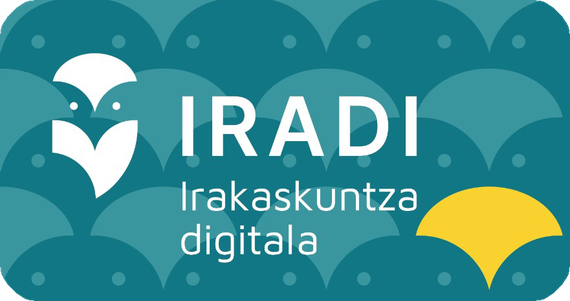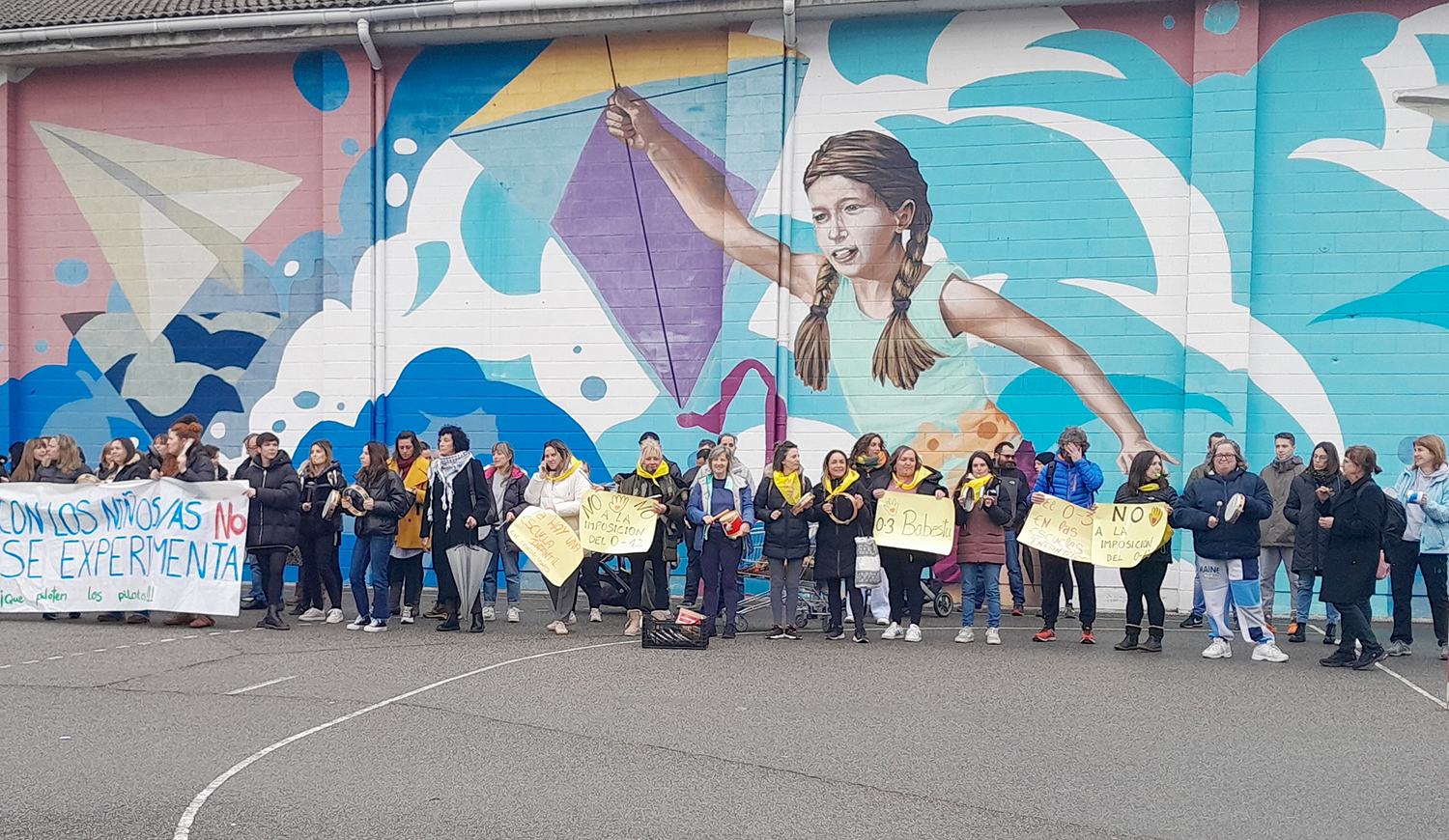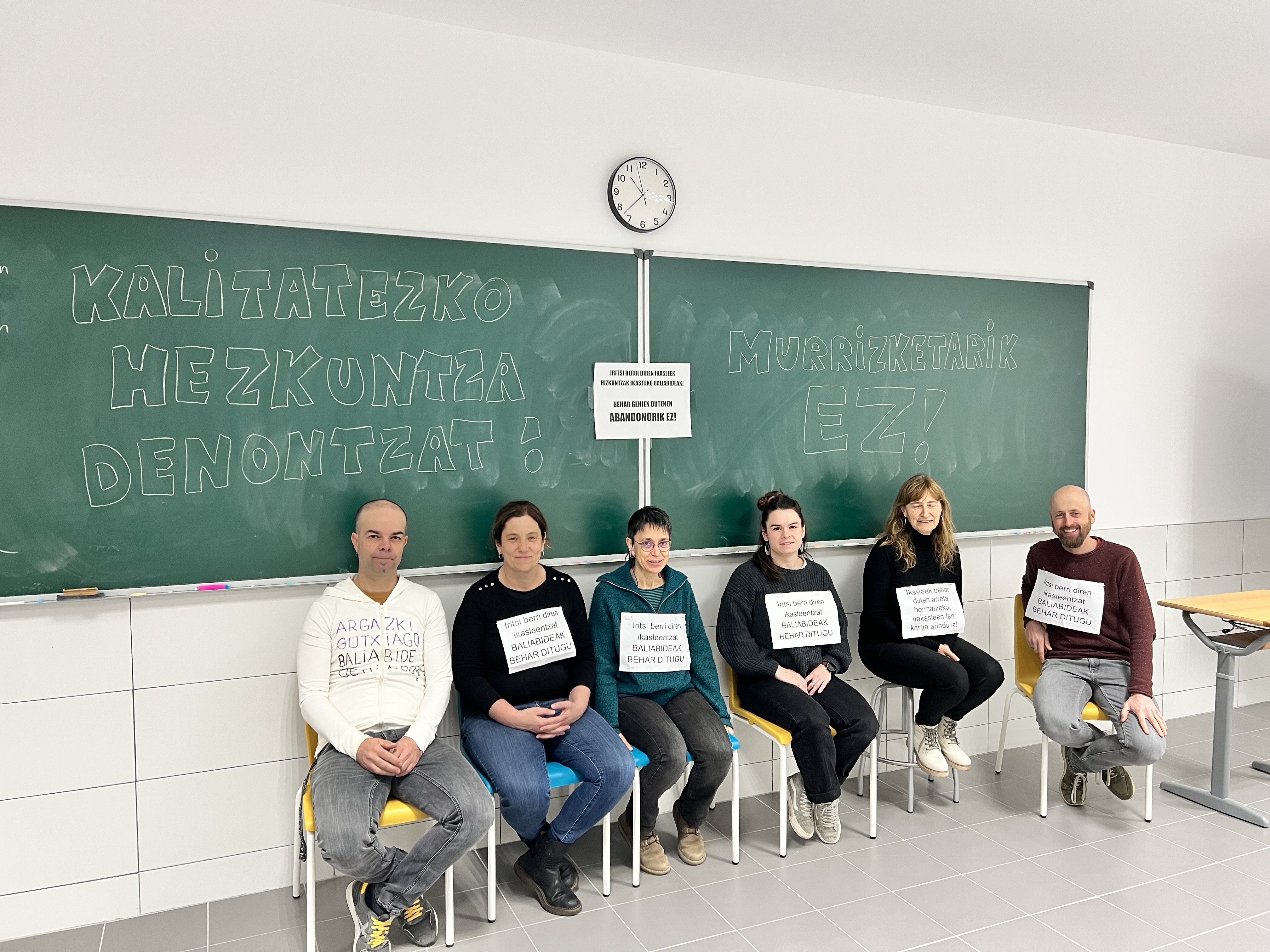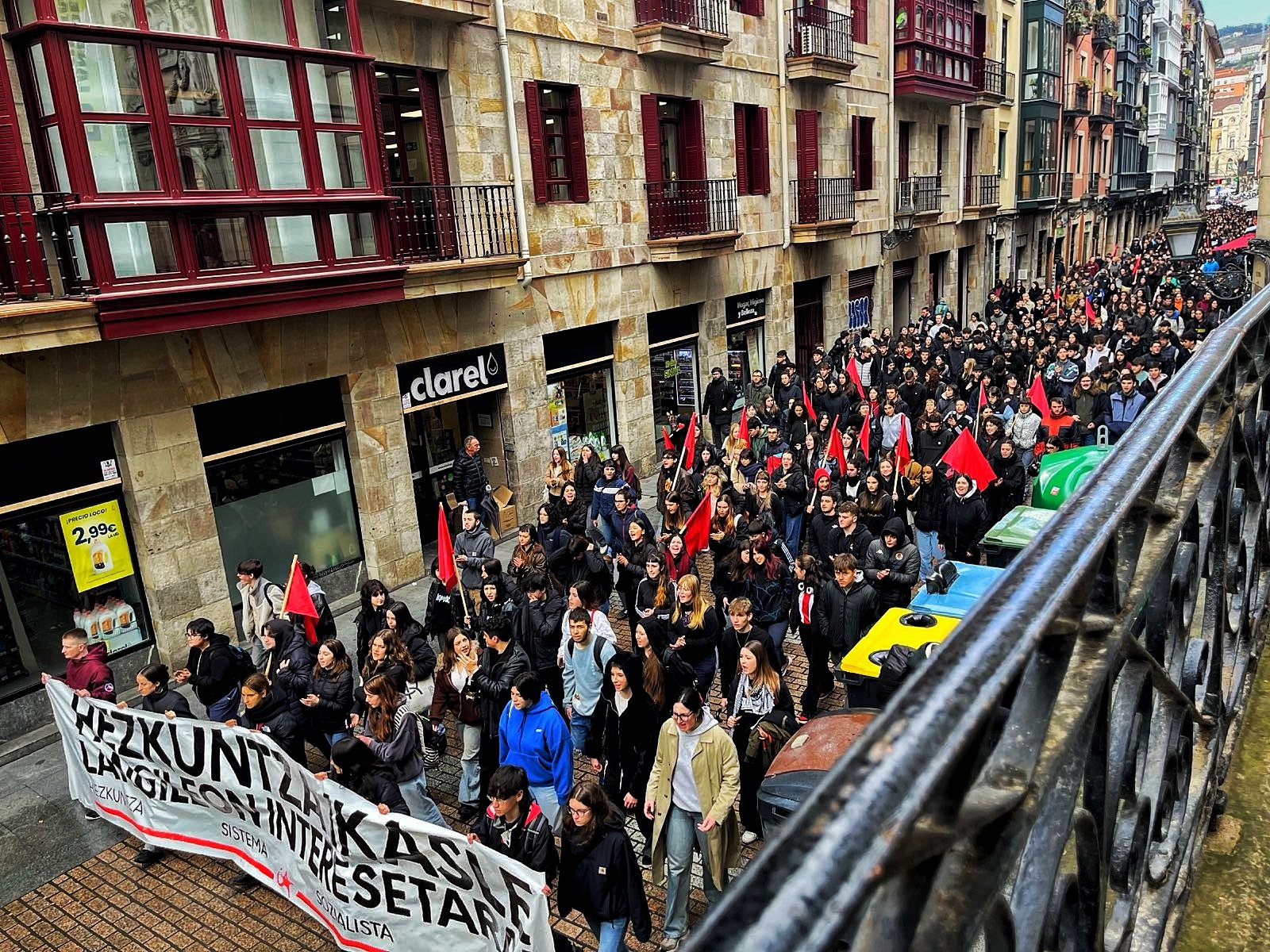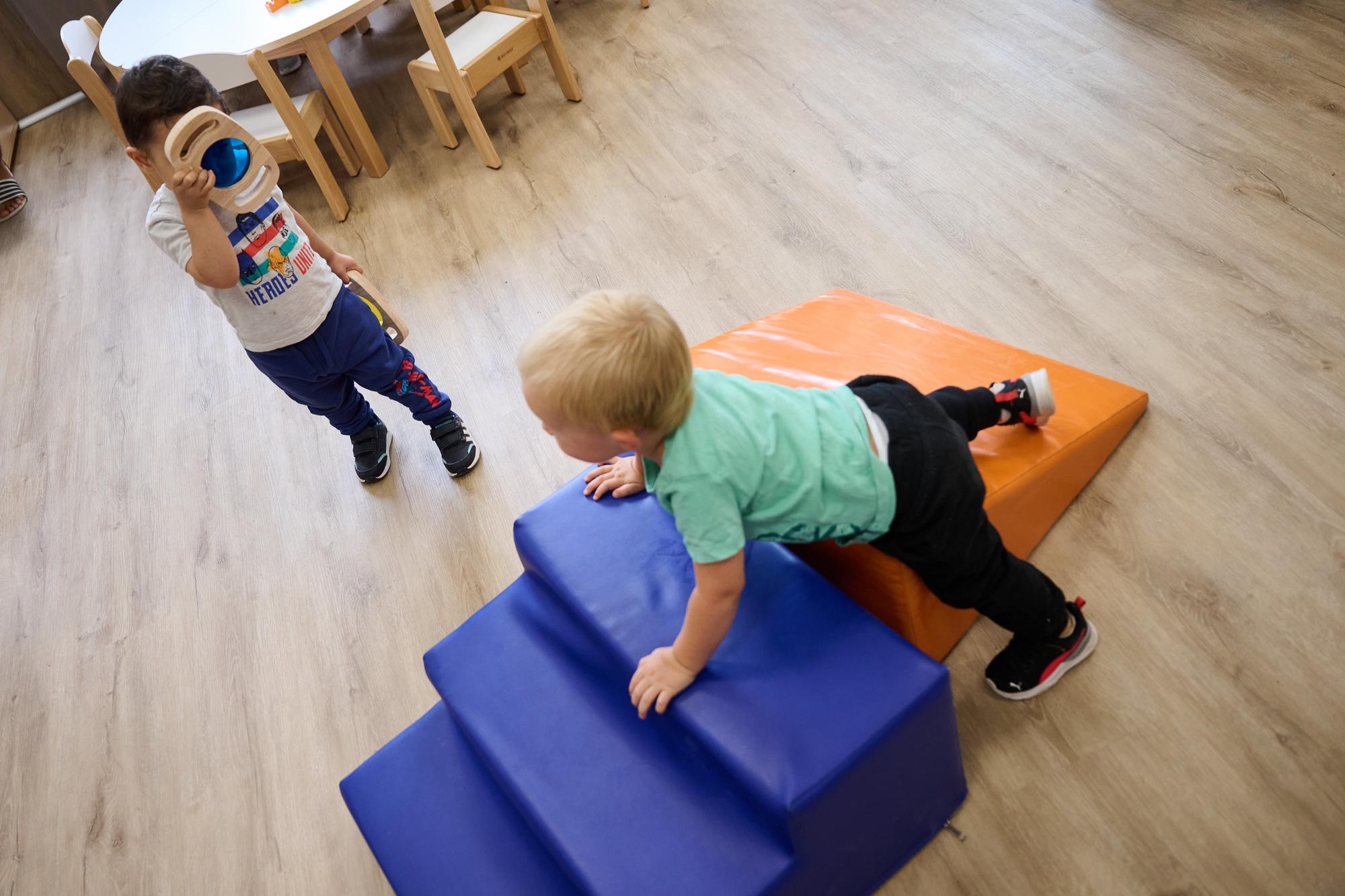"The mistake should be the basis for learning, but how many times do we make the mistake in school?"
- Professor and psychopedagogue Koldo Rabadan Izagirre has presented the bidean book he has just published with ARGIA on November 3 in the former Donostia library. The ARGIA journalist, Estitxu Eizagirre, has been in charge of answering the questions of those present. By way of introduction, Eizagirre has stressed that Rabadan is a professor who has never left work within the class and a person who has transformed the public school in which he currently works, along with his colleagues who have found the way: he explains the ideas and approaches that are at the basis of this transformation into a special book in the form of a decalogue. Elena Laiz and Maitane Gartziandia have produced the illustrations.

From the experiences you count the basis or the principle by which you give class. Why from experiences and not from concrete theories and pedagogy?
Because experiences do. What has really brought us to this point is the daily experience: what happens when we work with the students. I do not believe that the external formations have brought us here.
I can calculate that I've been half my lively professor, about 20 years old. I'm going to have a lot of other experiences over the next 20 years, and maybe I can change and evolve the perspective. Students' daily experiences are also very important. What experiences do our students have in everyday life in our schools?
In addition, this is not an instruction book, it is more an invitation: that you want to stay in time, reflect and think “something should we change?”. If you think we have to change, we're going to start transforming the classes all.
The theory doesn't shake him. The experiences are.
You claim that the school's goal should also be happiness. When is a child happy in school and in practice is a happy school?
Happiness doesn't just depend on school. But students spend many hours in school. Happiness should aspire to it, insofar as it is an attitude to make the way. How are we going to resume the path of the students? Happiness.
What do we mean by happiness? Attached to school, I relate happiness to a school for all. That is, the child has to have a space in school. The question is whether in today's school all boys and girls find a space, if they have the opportunity to show their color. Boys and girls are treasures, everyone has their skills and we should get the child to highlight those skills in school. With the organization of current schools, there are students who often have the opportunity to make them visible. Others don't. To do this we should transform the schools: So that all students have room in the school.
Students should be able to meet their wishes at school. And that has nothing to do with “what you put on the tip of your nose.” But we need a school that has the opportunity to do what it wants. It is not the student who has to adapt to the school, the school has to adapt to the curiosity of the student. When the child satisfies what he/she wants, he/she is happy and has not much to do with accomplishments, but with the attitude of making the way.
The pace of each student is different, as diversity is also reflected in it. How do you make a school that respects diversity?
Making a cry of inequality. Treating the different in the same way and making one feel just what one feels the same. Making room for each student. A treasure we have at our fingertips is the diversity of ages. Why do we have to distribute students by age? When we mix the students, every boy and every girl naturally finds their place.
Another key is colors, as Maitane Gartziandia has pointed out very well in the illustrations in the book. We have to look at the colors and appreciate more what students do in everyday life. That's the time they live here and now. That's the reality: what it does, what it's capable for. But I suspect that we look more at what it has to do: how far it should go, what's missing... We are too committed to it. A school that respects diversity must value more the path that the child does, and that accompanies us.
If every day we get all students to do the same work, at the same time, with the same goal... How is their pace respected? I see it as very difficult. In our school, for example, every child has their own project and has no chance of comparing it with the next one. There is no comparison, there is no judgment. When we fall in comparison, managing that emotional burden is very difficult. Each student has a project, and for the faculty, each student is a project.
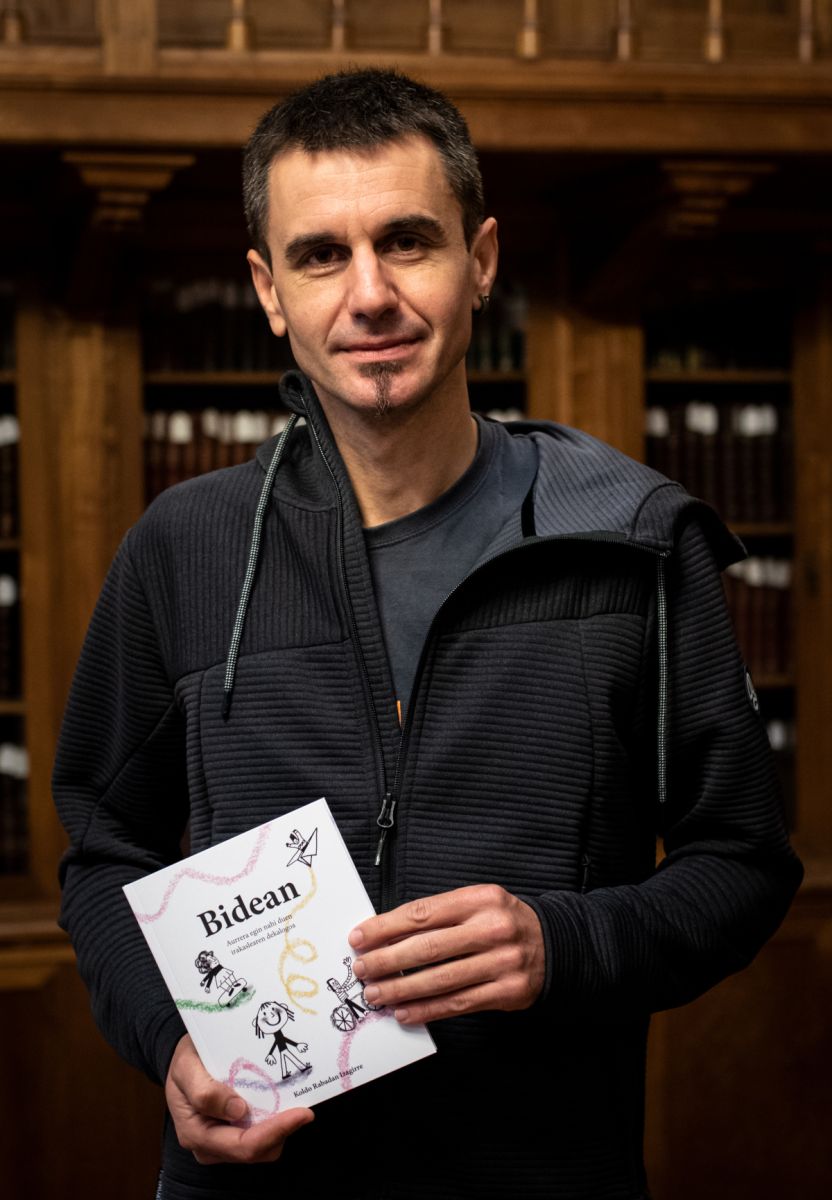
The book reads a very daring honesty, because it becomes self-critical when counting the passages back, and it also asks for forgiveness at times. Is error assessment one of the keys to learning?
Forgiveness is present throughout the book, although on two occasions the word “forgiveness” is mentioned. But in the book you see a request for forgiveness, because in twenty years of history we have not always been right. It's written from honesty.
We should apologize for the error. Error must be the way to learn. Today in schools we use the scientific method and the STEAM project, and I fully agree with that philosophy, but the scientific method praises the error: the test error, the test error, makes a claim to it. How many times do we make the mistake? How do we value the child's error?
The red ballpoint is replaced by the green, which is lighter, but we continue to use it in the same way: what we write, what we value is the same. When do we let the students take the test? Do we leave them in all areas? No, normally in art and in the areas we use as wildcard. But also mathematics is a field in which error must be fundamental.
Edison's mention is also well known, but we don't think much of it: when he invented the filament, people insisted that he was often wrong and he said no, that he now had the cleanest path, that he had a thousand ways of not making the filament.
Error must be the basis for learning, and today I do not know how much we take advantage of it.
In your school, you don't use the red ballpoint pen or exam to value.
In the path that each student is carrying out their project, we try to gather the evidence: Where is it located? What is he able to do? And our job is to be and help along that path. I don't think we need tests to know where those students are.
What we have to value is day-to-day work. We're at the beginning: all the students are from all of us. But there is time, often when we talk about competences, we do not realize that we have to acquire those competences at sixteen years. And we want to value too quickly what's missing to get there. What are you missing? Time!
We've all seen the students that we've dubbed or labeled under the name of "difficulty," and all of a sudden we say, "Ene, what's happened to him to make that jump?" For his development was that, and he had to give him time to make those changes. Those students have pushed me to make the book, those who have marked me: those who have “suffered” in their school years and those who have been able to take it out and fly.

[From the public this question is asked] The book appeals to change and teachers are heard that change with older students is more difficult or even depends on the school. What would you say to the professor who has this burden?
That we all have a limit: fear. Fears are legitimate and necessary, because that leads us to take safe steps. But fear cannot be the limit.
Studies indicate that the years 0-7 years are critical in the development of the child. Instead, we all take for granted the changes in Early Childhood and Primary Education, and we dare. I propose to continue these changes. And we're going to start with small changes, we don't have to jump without knowing if there's water. But I took a leap and the water is. At the beginning and end of the book, I asked a question with an invitation. Are you coming?
Going back to the scientific method, I've also made changes in my day to day as I've made a test error, but as I've taken steps I've seen that they were for the better. We've seen it from the team of teachers and we've been on the road together. The students themselves have realized, as well as the fathers and mothers, that the student advances in this path, that he is happy and has no problem in his abilities and competences. We also adhere to the decree and the law of education. This is not an idea, it's another way of working.
I didn't make an instruction book, I don't want you to understand that whoever reads this has to do it. The invitation is to take a space to reflect. No other individual. Has education changed a lot in the last 20 years? I would dare to say no. It is an invitation to take small steps.
To read the interview with Koldo Rabadam in ARGIA, click here.
To buy the book on the road, click here.
Hezkuntza eredu propioa "ezinbestean" independentziatik etorri behar dela adierazi dute, eta sistema propio hori "publikoa eta komunitarioa" izatea nahi dutela. Ikamak deituta, goizean zehar piketeak egin dituzte Euskal Herriko hainbat hezkuntza zentroetan.
EAJk, EH Bilduk eta PSE-EEk ekimen bat adostu dute Eusko Legebiltzarrean Hezkuntza Sailari eskatzeko Iradi software libreko hezkuntza plataforma hedatzen jarraitzeko. Zenbait ikastetxetan ezarri da Iradi orain arte. Baliabide partekatuak, komunikazio zerbitzuak (e-posta eta... [+]
Oier Sanjurjo Maté hautatu dute Nafarroako Ikastolen Elkarteko lehendakari. Atzo egindako asanbladan erabaki zuten izendapena. "Mugarri garrantzitsua da euskarazko hezkuntzaren etorkizunerako foru erkidegoan", adierazi du Ikastolen Federazioak ohar batean.
Eskolaz kanpoko jardueren eskaintza zabala egiten duten ikastetxeen aldean, beste askok ez du horretarako aukerarik; eta eskola bereko ikasleen artean ere, denek ezin dute ekintzetan parte hartu, baliabide ekonomikoek baldintzatuta. Esku hartzeko dei egin diete instituzioei:... [+]
Haurreskolara beharrean, 0-3 urte bitarteko umea zuzenean ikastetxera bidaltzea, Haur eta Lehen Hezkuntza osoa (12 urtera arte) hartzen dituen zentro berera. Hori da Nafarroako Hezkuntza Sailak Burlatako Hilarion Eslava ikastetxean martxan jarriko duen proiektu pilotua eta... [+]
Institutuko giza baliabideak hobetzeko eskatu dute irakasleek, ikasleei kalitatezko arreta eman ahal izateko. Kartelekin eta pankartekin itxaron diete irakasleek lehendakariari. Jaurlaritzako ordezkariek ikastetxeko zuzendaritzari esan diote ez zutela "horrelakorik... [+]
Ongi etorria eman digu Unai Mendizabalek A eredutik D eredura aldaketa egitea erabaki dugulako Judimendi auzo eskolan. Bidea malkartsua izango dela ere ohartarazi digu Armentia Ikastolako guraso eta Arabako Ikastoletako lehendakariak. Gure esker ona adierazi nahi diogu eman... [+]
Azken asteetan zenbait unibertsitatetako ate irekien jardunaldietara joateko aukera izan dut. Semea aztertzen ari da zer ikasiko duen datozen urteotan eta, erabakia hartu aurretik, komeni da aukera guztiak begiratzea. Unibertsitate bakoitzak badu bere misioa, bere izaera, bere... [+]
Ez dira gutxi azken boladan euskara bere onenean ez dagoela eta bere transmisioa bermatuta ez dagoela ohartarazten ari diren ahotsak. Bestetik, inork ez du ukatzen hezkuntzak ezinbesteko betebeharra duenik euskara eta euskal kulturaren biziraupenerako. Erronka estrategikoa... [+]
Hezkuntza bi arazo handik zeharkatzen dutela adierazi dute IAk: "ideia erreakzionarioen" gorakadak eta "ikasleen egoeraren okertzeak". Mobilizazioaren deialdia hedatzeko, goizean errepide mozketak egin dituzte Donostian, Iruñean eta Gasteizen. Bilbon, Euskal... [+]
Iruñeko haur eskoletako zuzendariek, EH Bildu, Geroa Bai, Zurekin Nafarroa eta PSNren arteko akordioa kritikatu dute. “Murgiltze ereduaren alde egin dugu beti, baina inoiz ez da gure iritzia kontutan hartzen” salatu du Euskalerria Irratian, Garikoitz Torregrosa... [+]
Zinez txalogarria, eskolako irakasle talde jakin baten borondatez, eta zenbait gurasoren inplikazioz, A ereduko ikastetxe estigmatizatu bat D ereduko eskola bilakatzeko abian jarri duten prozesua Gasteizko Judimendi auzoan. Honela, posible egiten ari dira Araba, Bizkaia eta... [+]
2025-2026 ikasturterako matrikulazio kanpaina hasi baino bi aste lehenago, Hezkuntza Saileko arduradunengana jo genuen, itunpeko eskoletako gelen ituntze maila ez delako egokitzen demografiaren jaitsierara eta indarrean dagoen lege esparrura.
Hiri gehienetan arazo orokorra... [+]
Eskolako zenbait gurasok euskalduntzeko egindako ahalegina ikusarazi, eta hezkuntza komunitatean euskararen aldeko jarrerak piztu. Helburu horiekin bultzatu du Autobiografia Linguistikoak ekimena Ramon Bajo ikastetxeko Basartea gurasoen elkarteak, Gasteizko Alde Zaharrean. Pozik... [+]









